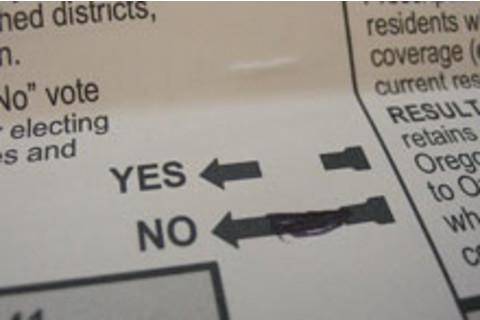
People who say they're undecided on a hot political topic may already have made up their minds; they just haven't consciously realized it yet. A clever new study that measured unconscious positive and negative associations indicates that most undecided voters have already formed a preference for one position or candidate.
Experts say the findings may help explain why political polls can be so off-base, and why some people make up their minds in the voting booth with little sense of why they pulled the lever yeah or nay, blue or red [The New York Times].
Pollsters and politicians who think that undecided voters can still be swayed either way should take note, says lead researcher Bertram Gawronski. In the study, Gawronski's team interviewed 129 residents of Vicenza, Italy, during the last two months of 2007 about the impending enlargement of a U.S. military base in their community, a polarizing issue at the time
[Science News].
The residents were all quizzed about their views on the expansion, and were later given a computer test measuring their positive or negative associations with the military base. The "undecided" participants who demonstrated positive associations with the base later endorsed the expansion, and those who had negative associations later opposed it. (Here's a more detailed description of the "Implicit Association Test.") But what does this study, which will be published tomorrow in the journal Science [subscription required], mean for polls leading up the presidential elections in November? Gawronski says pollsters could try to improve their surveys by including questions or tasks that indicate unconscious associations. More broadly, it means that pollsters should take answers with an extra grain of salt. Says psychologist Timothy Wilson: “To social psychologists and academic political scientists, people’s answers are highly suspect”
Image: flickr/fuctoruser













